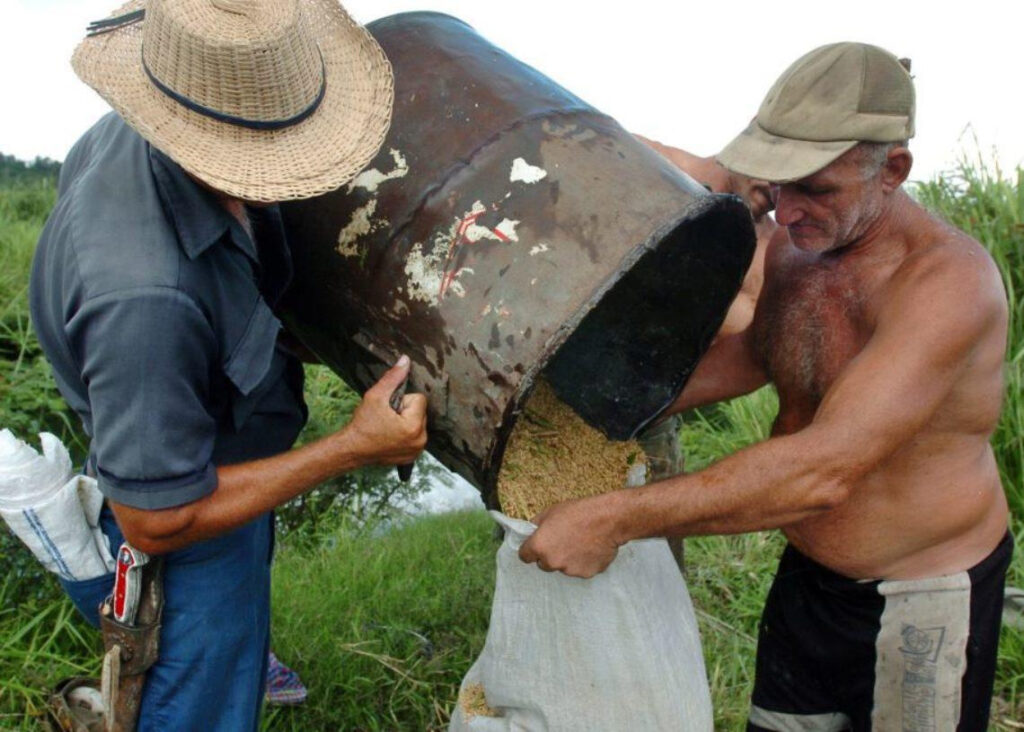The official press accuses 41% of Avila producers with electrified irrigation of “not contributing to the food of the people”

14ymedio, Madrid, 9 September 2024 – “For three months they stopped paying us in the national currency, and they have never paid us what we are owed for over fulfillment,” complains Juan Carlos Durán Rodríguez. The rancher, owner of cattle and land in Cienfuegos, launched the claim in a debate between the authorities and local producers prior to the congress of the official National Association of Small Farmers (Anap), where the impact of these non-payments was verified, which contributed to rice production decreasing by almost 98% between 2018 and 2023.
The official press echoed his complaint this Sunday, saying that Durán complies with the agreed milk delivery figures to the Escambray Dairy Products Company, with between 13 and 18 liters per day. According to September 5, the “accumulation of non-payments to rice and milk producers, along with the inconveniences of banking” are the main concerns expressed by the farmers of the municipality of Aguada de Pasajeros.
“By not having this money on time, we are almost forced to cut back on our duties, because we live from milk production; this is how we maintain the family, pay for electricity and invest, for example, in the fences, something very expensive, because a roll of wire costs up to 18,000 pesos,” Durán argues.
Their situation is, despite this, better than that of the rice growers, who have accumulated four months of non-payment by the state-owned Granas Agroindustrial Company, which says it has no liquidity. And it is no exception.
“Already last year I went for months without getting paid, and now it’s the same. It’s a very difficult situation, because I’m a major producer”
“Already last year I went five months without getting paid, and now it’s the same. It’s a very difficult situation, because I’m a major producer. I own more than three cabalerrías (126 hectares) of land, with high production costs that are around four million pesos. In addition, I have a family, equipment to fix, and the repair of a tractor today costs between 200,000 and 300,000 pesos,” says farmer Pedro López Izquierdo. “I don’t care about the price, ten pesos more or less doesn’t hurt; the damage is that they don’t pay, because that slows down production, and one


